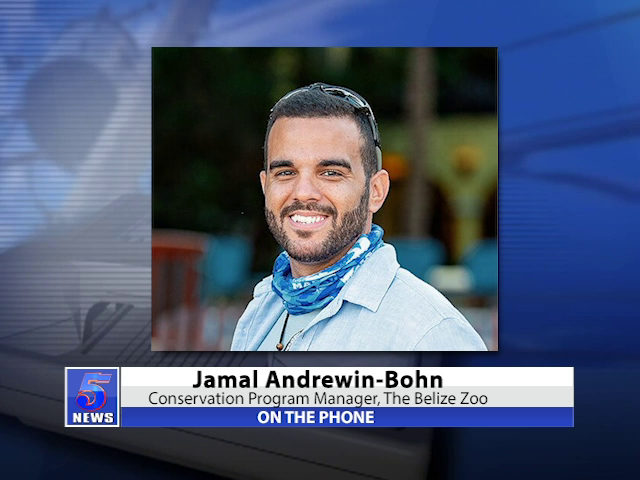Zoo Official Says Clinical Medicine is Best Treatment for Snake Bites
While Adrian Cus might take a while to recover from the snake bite, taking him to the medical clinic was the right thing to do, says Jamal Andrewin-Bohn. Since the child was bitten, quite a few persons have commented that his family should have sought a herbal healer, otherwise known a bush doctor, to treat the snakebite. But Andrewin-Bohn, who is the conservation program manager at the Belize Zoo, told News Five that the best treatment for snake bites is clinical medicine.
Via phone: Jamal Andrewin-Bohn, Conservation Program Manager, the Belize Zoo
“With venomous snake bites, the challenge is that this venom that the snake produces, it’s a naturally occurring compound, they produce it, and really the only cure that there is for a venomous snake bite is derived from the venom itself, it’s the anti-venom which they develop in a lab and everything. They use the same compounds to create the cure. And so to completely cure the body or neutralize the effects of venom, you need anti-venom. The challenge is, in Belize we live in a developing nation where medical facilities might not be close by or the amount of the antivenin that they carry might be limited. But generally what we recommend is the priority is getting any snakebite victim to the closest medical facility so they can start the process of administering the anti-venom. What we have encountered over time, and this is the feedback from medical professionals, nurses, doctors that work in Belize and treat medical cases that deal with venomous snakebites. It’s usually when they get the referral it’s late. It’s very late and the situation is dire. This is when they would oftentimes see fatalities from snakebites, the victim waited too long to receive traditional medicine. They would have relied heavily on herbal remedies, home remedies to treat the symptoms, right? And so we don’t put down, or it’s not to discourage the use of traditional medicine, but it’s to recognize the difference between treating the symptoms and treating the cause. No compound has been universally accepted to, to neutralize venom in the same way that antivenom does. So what you have are a lot of things that might help with the swelling, the pain, and elevated heart rate. We know that there’s things we take when it’s cold or flu season to boost our immune system. So there are things that can help with alleviating the pain and discomfort, but those shouldn’t be relied on as the sole cure. And I think that’s where a lot of the education and sensitization comes when dealing with venomous snakebites. There’s a lot of supportive auxiliary medicine that has to go into that. They have to worry about allergic reactions to the antivenin because it’s ultimately a foreign body and our body will treat it as such. Our body will attack it. So this is why it’s safer to do it in a medical facility because if there’s any allergic reaction, anything like that, they can manage it. And then they will give medication for pain, for swelling, all this stuff that we would try to solve in the home. But the priority is to get the venom under control. Then you could delete the secondary symptoms. We might take something home and that’s We feel better and that, that leaves the pain and that gives the impression that the venom has been dealt with when really it’s just, again, one of the symptoms that has been brought into under control and it gives the false hope that the venom has been neutralized. And so this is the kind of information we put out when we do education and training with respect to snake bites.”







Facebook Comments